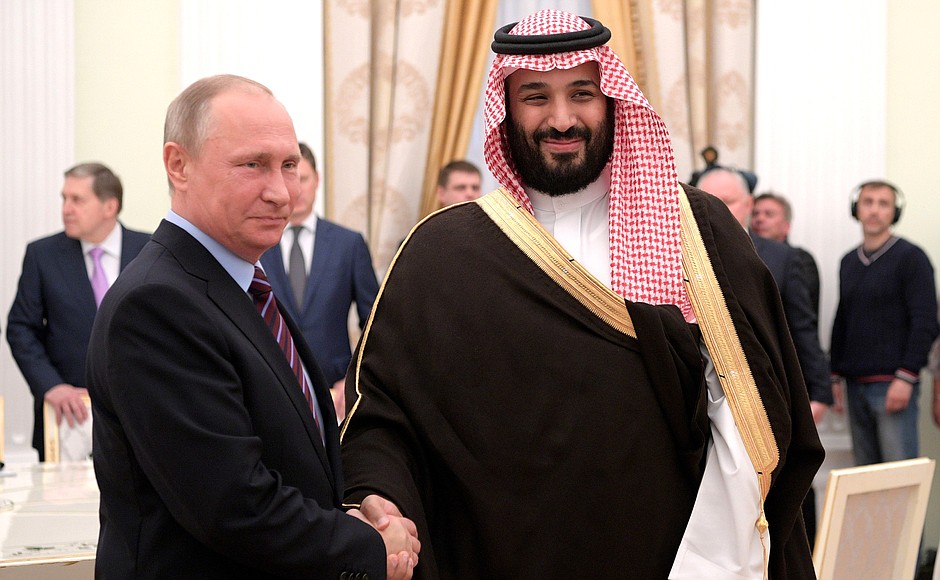Dear Renzi, why are Russians in Saudi Arabia over Putin?

The open letter from Marco Mayer, professor of Intelligence and National Security at Lumsa, to Matteo Renzi
Dear Matteo,
I am not one of those who envy you for the invitations you receive from abroad (which you mention in your latest Enews ). As you know, I also get invited to international conferences in the USA, India, Israel, etc.
Based on my experience I have learned that in international politics it is good to have contact with everyone, but it is equally important not to give trust and above all legitimacy to public figures who are characterized by politically ambiguous behaviour.
To explain, I'll give an example. Elon Musk is much courted by Italian politics. But no one remembers that Musk himself – in the midst of an ongoing military operation – prevented marine drones launched by Ukrainian forces from hitting some Russian Federation military ships in the Black Sea.
I don't know whether Musk was right or wrong in blocking satellite communications to save Vladimir Putin's fleet, but he was very wrong in acting without warning the political and military leadership in Kiev of his change of heart.
Ambiguity is a nasty beast. It inevitably belongs to the game of political tactics and to poker players. But be careful: the tactic cannot be abused, because otherwise it turns into a boomerang.
The great global challenges that you often mention (climate change, application of artificial intelligence in political regimes – with the necessary distinctions between democracies and dictatorships -, global health, food security) require maximum coherence between public communication and political behaviour. When fundamental values and rights are at stake, double standards cannot be applied.
You are, for example, undoubtedly right when you criticize Giuseppe Conte for his unscrupulous flirtations with Vladimir Putin during the pandemic .
But, still speaking of Putin, it comes naturally to me to ask you: why don't you use the trust you enjoy in Ryad to raise the problem of the Russian Federation and its ambivalent relations between Moscow and Saudi Arabia? After the invasion of Ukraine, the Saudi government significantly intensified its economic and energy cooperation with the Russian Federation (including nuclear).
No one expects you to ask Prince Mohammad bin Salman Al Saud to take care of Alexei Navalny's condition or even to inquire about the latest prison to which he was mysteriously transferred. However – having the privilege of being on the board of the most important Saudi think tank – you should ask yourself and your colleagues on the board some questions about the relations between Ryad and the Kremlin.
Putin had cleared Hamas well before October 7, and after the massacre he did not change his position. More generally, the Kremlin is attempting to increase its geopolitical influence in the area also to circumvent sanctions. What does the Saudi government think?
Just take a geographical map and (starting from Sevastopol) draw a line connecting Latakia in Syria, Tire in Lebanon, Massawa in Eritrea, Djibouti, Sanah in Yemen, Port Sudan in Sudan, and then go back towards Niamey in Niger, Bamako in Mali . The path I have just indicated signals Russian expansionist attempts in the southern shore of the Mediterranean, in the Sahel and in the Gulf (to which we must add the "bridgehead" in Eastern Europe represented by Viktor Orban's Hungary).
I could continue, describing Moscow's powerful disinformation activity (as happened in the recent local elections in Moldova) in view of the next European elections. Vladimir Putin sees the United States of Europe project as smoke and mirrors and in the coming months he will do everything to hinder it by fueling populist sovereignism (in the wake of the AFD in Germany, etc.) and encouraging divisions between countries in the most unscrupulous way Europeans.
For these reasons it is necessary to shine a spotlight on relations between the Russian Federation and an important country like Saudi Arabia. I expected you to mention this topic in the "reassuring" interview you gave last Saturday to Sette , the weekly supplement of Corriere della Sera .
Putin's spokesman, Dimitri Peskov, recommended discretion on the existing agreements between Russia and Saudi Arabia. From what little has transpired, the solemn meeting on December 6th between Vladimir Putin and Prince Mohammad bin Salman Al Saud could hold some worrying surprises.
I hope I'm wrong, but in your shoes and from your privileged observatory I would keep my eyes wide open. Something is cooking and it is good to be prepared in such a delicate phase of international politics.
If I'm not mistaken, since invading Ukraine in February 2022, Putin has only left Russia's borders three times. The first trip to Tehran, the second to Beijing, the third to Ryad and Abu Dhabi to meet the Saudi prince and the sovereign of the United Arab Emirates. Just enough to trigger the code red.
Thanks for your attention.
Your
Marco Mayer
This is a machine translation from Italian language of a post published on Start Magazine at the URL https://www.startmag.it/mondo/matteo-renzi-arabia-saudita-russia-putin/ on Wed, 20 Dec 2023 08:57:15 +0000.
